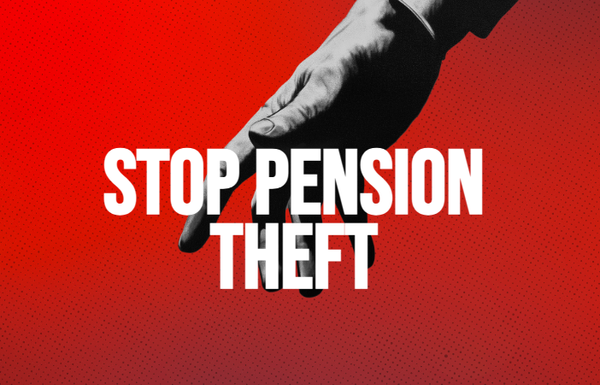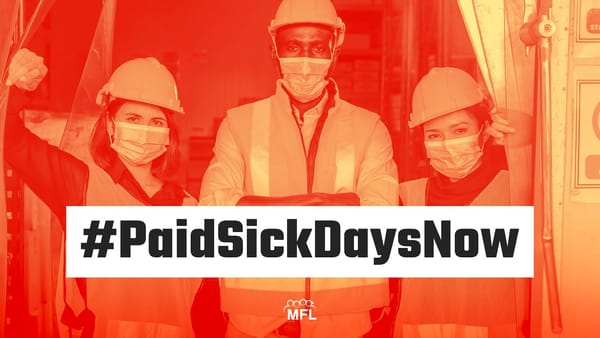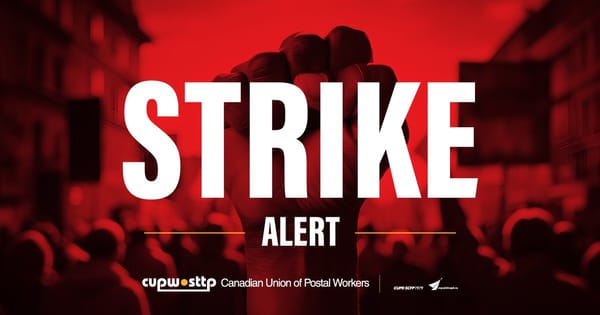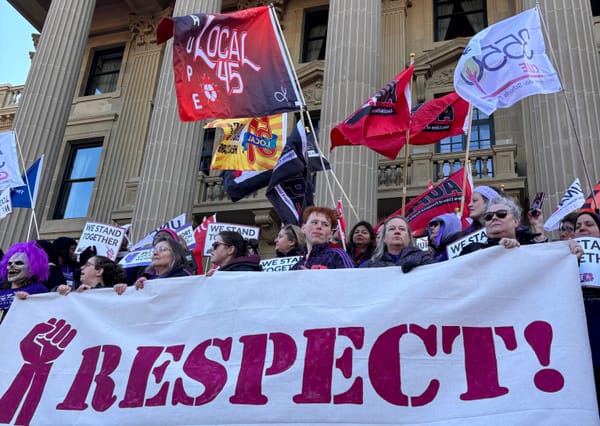
This past week, Passage ran a pair of articles for and against vaccine passports, a measure that would require people to prove COVID-19 vaccination, or a recent negative test, in order to enter various public spaces or private businesses.
For what it’s worth, I’m tentatively fine with this proposal. In my estimation, it’s an unfortunate consequence of there being a vocally obstinate minority of “vaccine hesitant” people who are placing others (usually those more vulnerable to COVID-19 than themselves) at risk.
As of July 24, 80.3 per cent of Canadians 12 and older received one shot, while 63.68 per cent were fully vaccinated. In the United States, the figures as of August 7 are 57.8 and 49.7 per cent, respectively, and have more or less plateaued, partly the result of a lack of willingness from those who haven’t done so to get vaccinated.
There is thus a pressing risk that herd immunity will be impeded by “vaccine hesitant” holdouts.
In Canada, vaccine hesitant or resistant people number around 18 per cent of the population. In the U.S., the Centers for Disease Control and Prevention have produced state and county level data on vaccine hesitancy showing that upwards of 26 per cent of people in certain rural areas are unsure or unlikely to get the vaccine (though, thankfully, “hesitancy” numbers are much lower in most urban areas.)
Contradictory forces are at work, however. I was surprised to find out that — in the U.S., no less — the stronger measure of a full vaccine mandate appears to be quite popular. The COVID States Projects’ most recent survey indicates that, overall, 62 per cent of Americans support requiring everyone to get the vaccine. More evidence of a divided America?
It’s highly unlikely that a general vaccine mandate would ever be implemented in either the U.S. or Canada. But that doesn’t mean we won’t see less encompassing forms of mandates. A vaccine passport would therefore essentially be a way to systematize the various ‘site-specific’ vaccine mandates that will likely be implemented as we approach full national re-openings.
However, conflicts between governments, employers and unions are emerging over the issue of vaccine mandates for certain workplaces or public spaces.
The U.S. Department of Veteran Affairs became the first federal agency to mandate vaccination for its 115,000 most “patient-facing” healthcare workers. In New York City, Mayor Bill De Blasio announced on July 26 that all city employees, including police officers, firefighters and teachers, would have to get vaccinated by September 13 or undergo weekly testing. On Monday, New York City declared that they’ll implement a vaccine passport, requiring workers and customers to show proof of the shot in order to access many indoor businesses and activities.
Initially hesitant, the Biden Administration has also expressed that vaccine mandates will be implemented for all federal employees in the U.S.
In the private sector, several large American corporations have also announced vaccine mandates for at least some of their workers, including Delta Air Lines, Google and Facebook, Netflix, and Morgan Stanley.
So far, the position of the federal government in Canada has been to only consider vaccine requirements by staff position and workplace. Although vaccination rates are higher in Canada, there may be a need to be more aggressive with workplace vaccine requirements if herd immunity remains out of reach.
With Canadian governments, for the most part, not mandating, businesses in Canada are also holding back and not exposing themselves to the legal risk that vaccine mandates might pose. According to Global News, no major companies they spoke to indicated that they’re mandating vaccinations for their employees at this time.
Vaccine mandates in private workplaces raise privacy and human rights concerns. However, there’s also nothing concrete that legally prevents employers from issuing mandates. Rather, companies would need to demonstrate the health and safety necessity of vaccination in their particular workplace, if legally challenged.
The vaccine mandate conversation when it comes to workplaces is being driven almost entirely by employers and governments. This is true whether in the U.S., where mandates are currently being imposed or considered, or in Canada where such measures are being pursued in a more piecemeal and hesitant way.
The response of the labour movement, both in the U.S. and Canada, has been uneven, at best, and at times uncoordinated and contradictory. While many unions have fought to ensure that members aren’t exposed to undue risk at work and gain access to vaccines, others also maintain that collective agreement language should maintain a “right to refuse” vaccination.
President of the AFL-CIO, Richard Trumka, said on C-SPAN last week that the U.S. national labour federation supports vaccine mandates in workplaces, or continued masking where vaccination is lacking.
Yet American labour is far from speaking in one voice on the issue. Numerous public sector unions spoke out against, or expressed concerns about, President Joe Biden’s announcement of a vaccine mandate for federal employees and contractors, including presidents of: the American Federation of Government Employees, the American Federation of Teachers, and the National Treasury Employees Union.
Primarily, U.S. public sector unions seem to be most upset by the lack of negotiation from government employers before issuing vaccine mandates. The American Postal Workers Union, for example, issued a statement calling for “[i]ssues related to vaccinations and testing for COVID-19 in the workplace [to] be negotiated with the APWU.” The union “continues to encourage” its members to get vaccinated, but doesn’t believe it’s the place of their employer to mandate this.
Similarly, in New York City, the union representing emergency workers with the New York City Fire Department opposed De Blasio’s mandate, considering vaccination and workplace health and safety to be “subject[s] of collective bargaining.”
In California, the largest state public sector union plans to fight Governor Gavin Newsom’s vaccination mandate.
In Canada, some unions have also expressed opposition to vaccine mandates, again, coaching this in the language of respect for collective bargaining.
The Public Service Alliance of Canada has a FAQ page informing members that employers can’t mandate a vaccination or a test, unless required by workplace health and safety regulations. The Canadian Union of Public Employees (CUPE), on the other hand, advocates collective bargaining language that aids workers to get the vaccine at no cost to themselves. Yet CUPE also maintains that collective agreement language should specify a “right to refuse” vaccination and outline the “potential consequences” of vaccine refusal.
Federal public sector unions in Canada have in some cases attempted to negotiate how vaccine requirements will work in workplaces where the latter are necessary, which can involve reassigning those unwilling or unable to be vaccinated.
In June, the federal minister of labour, along with Federally-Regulated Employers – Transportation and Communications, and the Canadian Labour Congress, issued a joint statement encouraging workers to get vaccinated and employers to accommodate them. Here also, the approach remains ‘encourage, don’t mandate.’
Unions are understandably reluctant to allow employers, private or public, to issue mandates. Yet one would hope this doesn’t spill over into a situation where protecting certain members’ “right to refuse” vaccination means impeding the fight against COVID-19.
The conflict between the public good of getting as near as possible to universal vaccination and protecting the rights of workers on the job can at times be tricky. When the issue is making sure workers have access to vaccines, what unions should do is fairly straightforward.
What to do about members who refuse vaccines is a more difficult issue, but this shouldn’t generate reluctance on the part of unions to push for vaccine mandates in workplaces that require them. Although unions have to protect the workplace rights of workers who refuse vaccines from punishment or dismissal, this can’t be allowed to change the narrative around vaccines and workplace health and safety.
Ensuring that workplaces are safe and workers are protected should be unions’ top priority.
Particularly for workers in high-risk workplaces where public contact is frequent and social distancing is difficult, advocating for vaccination requirements for both workers and customers will be necessary for health and safety. Unions should be at the forefront of this push, rather than allowing employers to be the ones issuing mandates.
In an ideal world, persuasion and solidarity would be enough to get us to a level of vaccination to keep everyone safe and protected, at work and beyond. Unfortunately, we don’t live in that world. Short of that, workplace-specific vaccine requirements are a logical and necessary step to protect worker health and safety.
When workplace mandates are needed, unions should be advocating for them to protect their members, not tailing the boss or allowing the language of ‘personal choice’ to detract from the central issues of workplace health and safety.








Member discussion